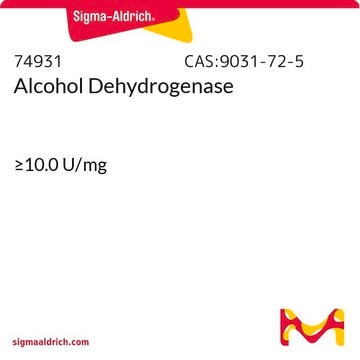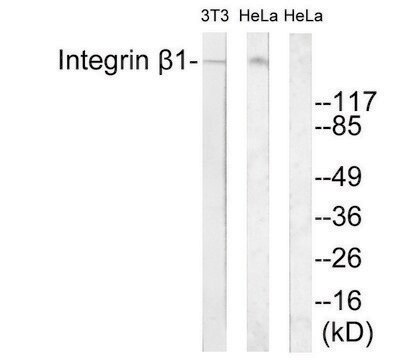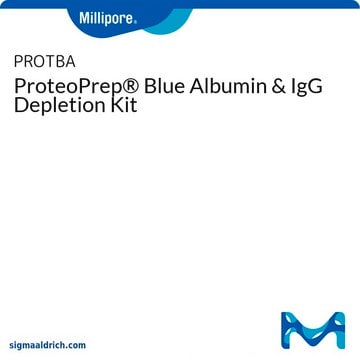MAB1978
Anti-Integrin αV Antibody, clone LM142
ascites fluid, clone LM142, Chemicon®
Szinonimák:
CD51
About This Item
IP
immunoprecipitation (IP): suitable
Javasolt termékek
biológiai forrás
mouse
Minőségi szint
antitest forma
ascites fluid
antitest terméktípus
primary antibodies
klón
LM142, monoclonal
faj reaktivitás
human
gyártó/kereskedő neve
Chemicon®
technika/technikák
immunohistochemistry: suitable
immunoprecipitation (IP): suitable
izotípus
IgG1
alkalmasság
not suitable for activity/function inhibition
NCBI elérési szám
UniProt elérési szám
kiszállítva
dry ice
célzott transzláció utáni módosítás
unmodified
Géninformáció
human ... ITGAV(3685)
Egyediség
Alkalmazás
Immunofluorescence and immunoprecipitation.
MAB1978 is non-blocking.
Final working dilutions must be determined by end user.
Cell Structure
Integrins
Tárolás és stabilitás
Jogi információk
Jogi nyilatkozat
Nem találja a megfelelő terméket?
Próbálja ki a Termékválasztó eszköz. eszközt
javasolt
Tárolási osztály kódja
12 - Non Combustible Liquids
WGK
nwg
Lobbanási pont (F)
Not applicable
Lobbanási pont (C)
Not applicable
Analitikai tanúsítványok (COA)
Analitikai tanúsítványok (COA) keresése a termék sarzs-/tételszámának megadásával. A sarzs- és tételszámok a termék címkéjén találhatók, a „Lot” vagy „Batch” szavak után.
Már rendelkezik ezzel a termékkel?
Az Ön által nemrégiben megvásárolt termékekre vonatkozó dokumentumokat a Dokumentumtárban találja.
Tudóscsoportunk valamennyi kutatási területen rendelkezik tapasztalattal, beleértve az élettudományt, az anyagtudományt, a kémiai szintézist, a kromatográfiát, az analitikát és még sok más területet.
Lépjen kapcsolatba a szaktanácsadással








